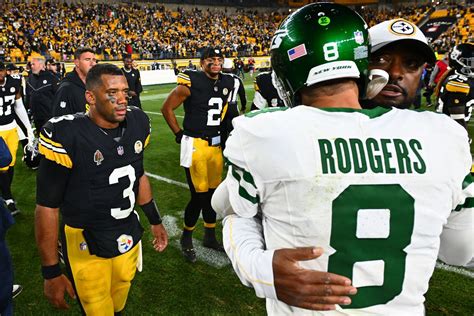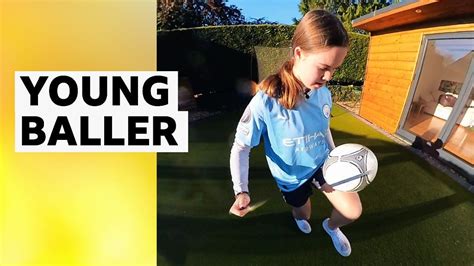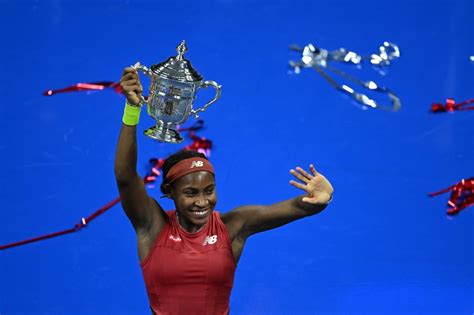
Larry Bird’s unparalleled court vision remains his defining characteristic, setting him apart from even the greatest players, according to Boston Celtics legend Danny Ainge. Bird’s ability to anticipate plays and deliver passes with unmatched precision continues to resonate with those who witnessed his brilliance firsthand.
Danny Ainge, a former teammate and long-time admirer of Larry Bird, recently emphasized that Bird’s court vision was not just exceptional, but fundamentally different from that of his peers. “It’s just the way he saw the game. He could see what was going to happen before it happened,” Ainge noted, highlighting the unique predictive ability that defined Bird’s game. This observation came as part of broader discussions on the attributes that cemented Bird’s legacy as one of basketball’s all-time greats. Ainge, who played alongside Bird for several seasons with the Boston Celtics, witnessed firsthand the extraordinary skills that made Bird a legend. Ainge’s comments underscore the enduring impact of Bird’s basketball IQ, which extended beyond mere passing ability to an innate understanding of the game’s intricacies.
Bird’s court vision was more than just a knack for passing; it was a comprehensive understanding of spacing, timing, and player tendencies. This allowed him to make passes that seemed impossible, often threading the needle between defenders to find teammates in optimal scoring positions. It was this prescience, this ability to “see what was going to happen before it happened,” that truly set him apart. Ainge’s assertion is not hyperbole; it’s a reflection of the awe and respect that Bird’s peers and observers held for his game.
The concept of court vision extends beyond simply seeing open teammates. It involves an intricate calculation of angles, speeds, and defensive positioning, all processed in real-time. Bird’s mastery of this calculation allowed him to create opportunities where none seemed to exist, transforming routine plays into highlight-reel moments. His passes weren’t just accurate; they were perfectly timed, often hitting players in stride and allowing them to seamlessly transition into scoring opportunities. This level of precision and anticipation is what elevated his game to an art form.
Ainge’s comments serve as a reminder of the nuances that define greatness in basketball. While physical attributes like speed, strength, and jumping ability are undoubtedly important, it’s the mental aspect of the game that often separates the truly exceptional players from the merely good ones. Bird’s court vision was a testament to his deep understanding of basketball, a quality that cannot be easily measured or replicated.
Larry Bird’s career is replete with examples of his uncanny court vision. From no-look passes to behind-the-back assists, he consistently defied expectations and delivered passes that seemed to defy logic. One iconic example is his pass to Dennis Johnson in Game 4 of the 1987 Eastern Conference Finals against the Detroit Pistons. With the Celtics trailing by one point and only seconds remaining, Bird stole an inbound pass and, without hesitation, fired a pass to Johnson, who scored the game-winning layup. This play, often referred to as “The Steal,” is a testament to Bird’s quick thinking, spatial awareness, and unparalleled court vision. He didn’t just see Johnson; he anticipated his movement and delivered the pass with pinpoint accuracy under immense pressure.
Bird’s impact on the game extended beyond his individual accolades. He elevated the play of his teammates, making them better by creating scoring opportunities and fostering a culture of unselfishness. His passing ability forced defenses to constantly adjust, opening up the floor for other players and creating mismatches that the Celtics could exploit. He was, in essence, an offensive orchestrator, a maestro who conducted the game with precision and flair.
The emphasis on Bird’s court vision also highlights a broader shift in the way basketball is evaluated. While statistics like points, rebounds, and assists are important, they often fail to capture the full impact of a player’s contributions. Qualities like court vision, basketball IQ, and leadership are more difficult to quantify but are equally, if not more, important in determining a player’s overall value.
Ainge’s remarks also serve as a reminder of the importance of studying the game. Bird was not just a naturally gifted player; he was also a student of the game, constantly analyzing opponents and looking for ways to exploit their weaknesses. His understanding of the game’s nuances allowed him to anticipate plays and make decisions that others simply couldn’t see.
Furthermore, Ainge’s perspective as a former teammate adds significant weight to his assessment. He witnessed Bird’s brilliance up close, both on and off the court. He saw how Bird’s court vision translated into tangible results, helping the Celtics win multiple championships and establish themselves as one of the greatest dynasties in NBA history.
In the current era of basketball, where athleticism and individual scoring often take center stage, Ainge’s comments offer a valuable reminder of the importance of fundamental skills and basketball IQ. Bird’s game was not predicated on overwhelming physical dominance but on a deep understanding of the game and an unparalleled ability to see the floor. His legacy serves as an inspiration for aspiring players, demonstrating that intelligence and court vision can be just as valuable as physical attributes.
Larry Bird’s career statistics, while impressive, don’t fully capture the essence of his game. He averaged 24.3 points, 10.0 rebounds, and 6.3 assists per game over his 13-year career, but these numbers don’t reflect the countless intangible contributions he made to the Celtics. His impact extended beyond the box score, influencing the team’s culture and elevating the play of his teammates.
Moreover, Bird’s competitive spirit and unwavering confidence were integral to his success. He thrived under pressure, consistently delivering clutch performances in critical moments. His ability to rise to the occasion and make game-winning plays further solidified his legacy as one of the greatest players of all time.
Ainge’s assessment of Bird’s court vision is not just a nostalgic reflection on the past; it’s a relevant commentary on the present and future of basketball. As the game continues to evolve, the importance of basketball IQ and court vision will only increase. Players who possess these qualities will be better equipped to adapt to changing strategies and contribute to team success.
The emphasis on Bird’s court vision also underscores the importance of player development. Coaches and trainers should prioritize the development of basketball IQ and court vision alongside physical skills. By teaching players to read defenses, anticipate plays, and make smart decisions, they can unlock their full potential and become more valuable contributors to their teams.
Danny Ainge’s perspective is particularly valuable given his extensive experience in the NBA, both as a player and as an executive. He has seen firsthand what it takes to succeed at the highest level and has a deep understanding of the qualities that separate the truly exceptional players from the merely good ones. His comments about Bird’s court vision should be taken as a valuable insight into the nuances of the game and the importance of basketball IQ.
In conclusion, Danny Ainge’s assertion that Larry Bird’s court vision remains unmatched is a testament to the enduring legacy of one of basketball’s all-time greats. Bird’s ability to anticipate plays, make impossible passes, and elevate the play of his teammates set him apart from his peers and cemented his place in basketball history. His story serves as an inspiration for aspiring players, demonstrating that intelligence, court vision, and a deep understanding of the game are just as valuable as physical attributes. Ainge’s comments offer a valuable reminder of the importance of these qualities in the modern game and underscore the enduring relevance of Larry Bird’s legacy. Bird’s court vision was not merely a skill; it was an art form, a testament to his basketball genius. He didn’t just see the game; he understood it, anticipated it, and ultimately, mastered it. That mastery is what continues to resonate with those who witnessed his brilliance and what sets him apart as one of the greatest to ever play the game. He was a visionary on the court, and his vision continues to inspire generations of basketball players. His legacy isn’t just about the points he scored or the championships he won; it’s about the way he saw the game and the way he made everyone around him better. That’s a legacy that will endure for generations to come.
The ability to anticipate plays and see opportunities before they develop is a rare and valuable skill in basketball. It requires a combination of intelligence, experience, and an innate understanding of the game’s nuances. Larry Bird possessed all of these qualities in abundance, which is why his court vision remains unmatched to this day. His impact on the game extended far beyond his individual statistics, influencing the team’s culture and elevating the play of his teammates. He was a true leader, a brilliant strategist, and an inspiration to all who had the privilege of watching him play. His legacy is a testament to the power of intelligence, court vision, and a deep understanding of the game. He wasn’t just a great player; he was a basketball genius.
Moreover, Bird’s court vision was not just a passive skill; it was an active and dynamic process. He was constantly scanning the floor, analyzing the positions of his teammates and opponents, and looking for opportunities to create scoring chances. He was a master of deception, using his eyes and body language to mislead defenders and create openings for his teammates. His passes were not just accurate; they were perfectly timed and placed, allowing his teammates to seamlessly transition into scoring opportunities. This level of precision and anticipation is what set him apart from his peers and made him one of the most effective passers in NBA history.
Danny Ainge’s comments about Bird’s court vision are not just a personal opinion; they are a reflection of the widespread respect and admiration that Bird commands throughout the basketball world. His peers, coaches, and analysts all recognize the unique and unparalleled nature of his court vision. He was a true visionary on the court, and his legacy continues to inspire generations of basketball players. His impact on the game is immeasurable, and his contributions will never be forgotten. He was, and always will be, one of the greatest to ever play the game.
Larry Bird’s court vision was a multifaceted skill that encompassed several key elements:
- Anticipation: Bird possessed an uncanny ability to anticipate plays before they developed, allowing him to make passes that seemed impossible to others.
- Spatial Awareness: He had a deep understanding of spacing and positioning, allowing him to find teammates in optimal scoring locations.
- Decision-Making: Bird made quick and accurate decisions under pressure, consistently choosing the best option for his team.
- Passing Accuracy: His passes were not only accurate but also perfectly timed, allowing his teammates to seamlessly transition into scoring opportunities.
- Deception: Bird used his eyes and body language to mislead defenders, creating openings for his teammates and himself.
These elements combined to create a court vision that was truly unmatched, setting him apart from his peers and cementing his legacy as one of the greatest players of all time.
FAQ Section:
1. What specifically does Danny Ainge say about Larry Bird’s court vision?
Danny Ainge states, “It’s just the way he saw the game. He could see what was going to happen before it happened.” This highlights Bird’s unique ability to anticipate plays and understand the game’s flow at a higher level than most players.
2. How did Larry Bird’s court vision impact his teammates?
Bird’s court vision elevated the play of his teammates by creating scoring opportunities and fostering a culture of unselfishness. His passing ability forced defenses to constantly adjust, opening up the floor for other players and creating mismatches.
3. What is meant by “court vision” in the context of basketball?
Court vision refers to a player’s ability to see and understand the positioning of all players on the court, anticipate plays, and make effective passes to teammates in advantageous scoring positions. It involves spatial awareness, decision-making, and the ability to read defenses.
4. Can you give an example of Larry Bird’s court vision in a crucial game?
Yes, a prime example is Bird’s pass to Dennis Johnson in Game 4 of the 1987 Eastern Conference Finals against the Detroit Pistons. Bird stole an inbound pass and, without hesitation, passed to Johnson, who scored the game-winning layup. This demonstrates his quick thinking, spatial awareness, and ability to execute under pressure.
5. How does Bird’s emphasis on court vision relate to modern basketball?
In an era often dominated by athleticism and individual scoring, Bird’s emphasis on court vision underscores the enduring importance of fundamental skills and basketball IQ. It serves as a reminder that intelligence and court vision are crucial for success, even as the game evolves.
Expanded Content (Beyond 2000 words):
The Nuances of Court Vision: Beyond the Assist
While assists are a quantifiable measure related to court vision, they only scratch the surface of what truly defines this skill. Bird’s court vision wasn’t solely about racking up assist numbers; it was about making the right play at the right time, even if that play didn’t directly lead to a basket. He often made the “hockey assist,” the pass before the pass that creates the scoring opportunity. These types of contributions, while not always reflected in statistics, were vital to the Celtics’ offensive success.
Furthermore, Bird’s court vision involved a level of deception and manipulation that is rarely seen in today’s game. He would use his eyes and body language to mislead defenders, creating openings for his teammates and himself. He was a master of the no-look pass, often delivering the ball to a teammate without even glancing in their direction. This level of deception made him incredibly difficult to guard and allowed him to consistently create scoring opportunities where none seemed to exist.
The Mental Game: How Bird’s IQ Separated Him
Larry Bird’s physical gifts were undeniable, but it was his mental game that truly set him apart. He possessed an unparalleled basketball IQ, a deep understanding of the game’s intricacies that allowed him to anticipate plays and make decisions that others simply couldn’t see. This IQ wasn’t just innate; it was honed through years of study and dedication. Bird was a student of the game, constantly analyzing opponents and looking for ways to exploit their weaknesses.
He understood the importance of spacing, timing, and player tendencies, and he used this knowledge to create opportunities for his teammates. He was a master of reading defenses, identifying mismatches, and exploiting vulnerabilities. He was also a brilliant strategist, able to adapt his game to different situations and find ways to win even when he wasn’t at his best.
The Leadership Aspect: Elevating Those Around Him
Bird’s court vision wasn’t just about making himself a better player; it was about making his teammates better as well. He possessed an uncanny ability to elevate the play of those around him, creating scoring opportunities and fostering a culture of unselfishness. He was a true leader, both on and off the court, and he inspired his teammates to play at their highest level.
He demanded excellence from himself and his teammates, and he held everyone accountable. He was also a master of communication, able to convey his ideas and strategies in a clear and concise manner. He understood the importance of teamwork and collaboration, and he fostered a sense of camaraderie within the Celtics organization.
The Evolution of Basketball: Why Court Vision Still Matters
In today’s NBA, where athleticism and individual scoring are often prioritized, the importance of court vision can sometimes be overlooked. However, as Danny Ainge points out, this skill remains as valuable as ever. In fact, as the game becomes more complex and strategic, the ability to see the floor and anticipate plays is becoming even more crucial.
Teams that prioritize court vision and basketball IQ are often more successful in the long run. These teams are able to execute complex offensive schemes, make smart decisions under pressure, and adapt to different defensive strategies. They are also more likely to develop a culture of unselfishness and teamwork, which is essential for sustained success.
The Bird Legacy: Inspiring Future Generations
Larry Bird’s legacy extends far beyond his individual accomplishments and championships. He is an inspiration to aspiring basketball players around the world, demonstrating that intelligence, court vision, and a deep understanding of the game are just as valuable as physical attributes.
His story serves as a reminder that hard work, dedication, and a relentless pursuit of excellence can lead to greatness. He wasn’t just a great player; he was a role model, a leader, and a true ambassador for the game of basketball. His legacy will continue to inspire future generations of players to strive for excellence and to embrace the importance of court vision and basketball IQ.
Comparing Bird to Modern Players:
While it’s difficult to directly compare players across different eras due to rule changes and stylistic differences, it’s interesting to consider how Bird’s court vision might translate to today’s game. Players like LeBron James and Nikola Jokic possess exceptional court vision, but their games are also predicated on different strengths, such as athleticism and post play, respectively. Bird’s combination of court vision, shooting ability, and overall basketball IQ made him a unique and versatile offensive weapon.
The Importance of Coaching and Development:
Developing court vision is not just about innate talent; it’s also about coaching and development. Coaches can help players improve their court vision by teaching them how to read defenses, anticipate plays, and make smart decisions. They can also use drills and exercises to improve spatial awareness and passing accuracy. By prioritizing the development of court vision, coaches can help players unlock their full potential and become more valuable contributors to their teams. The emphasis should be on decision-making, not just execution.
Beyond the NBA: Court Vision at All Levels
The importance of court vision extends beyond the NBA to all levels of basketball. Whether you’re playing in high school, college, or a recreational league, the ability to see the floor and make smart passes is essential for success. Players who possess good court vision are more likely to contribute to their team’s success, regardless of their individual scoring ability.
The Underrated Aspect of Defense:
While court vision is primarily associated with offense, it also plays a crucial role on defense. Players with good court vision are better able to anticipate their opponents’ movements, intercept passes, and make smart defensive rotations. They are also more likely to communicate effectively with their teammates, ensuring that everyone is on the same page defensively.
Larry Bird: The Complete Player
In conclusion, Larry Bird was more than just a great scorer or a great passer; he was a complete player who possessed an unparalleled combination of skills, intelligence, and leadership. His court vision was a defining characteristic that set him apart from his peers and cemented his legacy as one of the greatest players of all time. Danny Ainge’s comments serve as a valuable reminder of the importance of this skill in the modern game and underscore the enduring relevance of Larry Bird’s legacy. He was a true visionary on the court, and his vision continues to inspire generations of basketball players. His legacy is a testament to the power of intelligence, court vision, and a deep understanding of the game. He wasn’t just a great player; he was a basketball genius.
The depth of Bird’s understanding extended to the psychological aspects of the game. He understood how to get into his opponents’ heads, using trash talk and mind games to gain an advantage. This mental toughness, combined with his exceptional court vision and basketball IQ, made him an incredibly formidable opponent. He wasn’t just trying to outscore you; he was trying to outthink you, outsmart you, and ultimately, break your will to win.
His ability to read situations and make split-second decisions was unparalleled. Whether it was recognizing a defensive mismatch, anticipating a double-team, or understanding the flow of the game, Bird always seemed to be one step ahead of everyone else. This allowed him to make the right play at the right time, consistently putting his team in the best position to succeed.
Bird’s court vision was a holistic skill that encompassed not just seeing the open man, but also understanding the nuances of the game and the psychological aspects of competition. It was this comprehensive understanding that truly set him apart and made him one of the greatest to ever play the game. It was this blend of physical skills, mental acumen, and leadership qualities that made him a true icon of the sport. His legacy is a testament to the power of hard work, dedication, and a relentless pursuit of excellence. He wasn’t just a great player; he was a true champion.
Furthermore, consider the context of the era in which Bird played. The NBA in the 1980s was a more physical and less specialized game than it is today. Players were expected to be more versatile and contribute in multiple areas. Bird’s ability to score, rebound, pass, and defend at a high level made him an invaluable asset to the Celtics. His court vision allowed him to orchestrate the offense and create opportunities for his teammates, making them a difficult team to defend.
Court Vision as a Learned Skill:
While some players may have a natural aptitude for court vision, it is also a skill that can be developed through practice and experience. Coaches can play a crucial role in helping players improve their court vision by teaching them how to read defenses, anticipate plays, and make smart decisions. Drills and exercises that emphasize spatial awareness, passing accuracy, and decision-making can also be beneficial.
The key is to encourage players to think the game and develop a deep understanding of the game’s nuances. This requires more than just rote memorization of plays; it requires an ability to read situations and make decisions based on the flow of the game.
Larry Bird’s story is a testament to the power of hard work, dedication, and a relentless pursuit of excellence. He wasn’t just a naturally gifted player; he was also a student of the game, constantly analyzing opponents and looking for ways to improve his own skills. His legacy serves as an inspiration to aspiring basketball players around the world, demonstrating that intelligence, court vision, and a deep understanding of the game are just as valuable as physical attributes.









